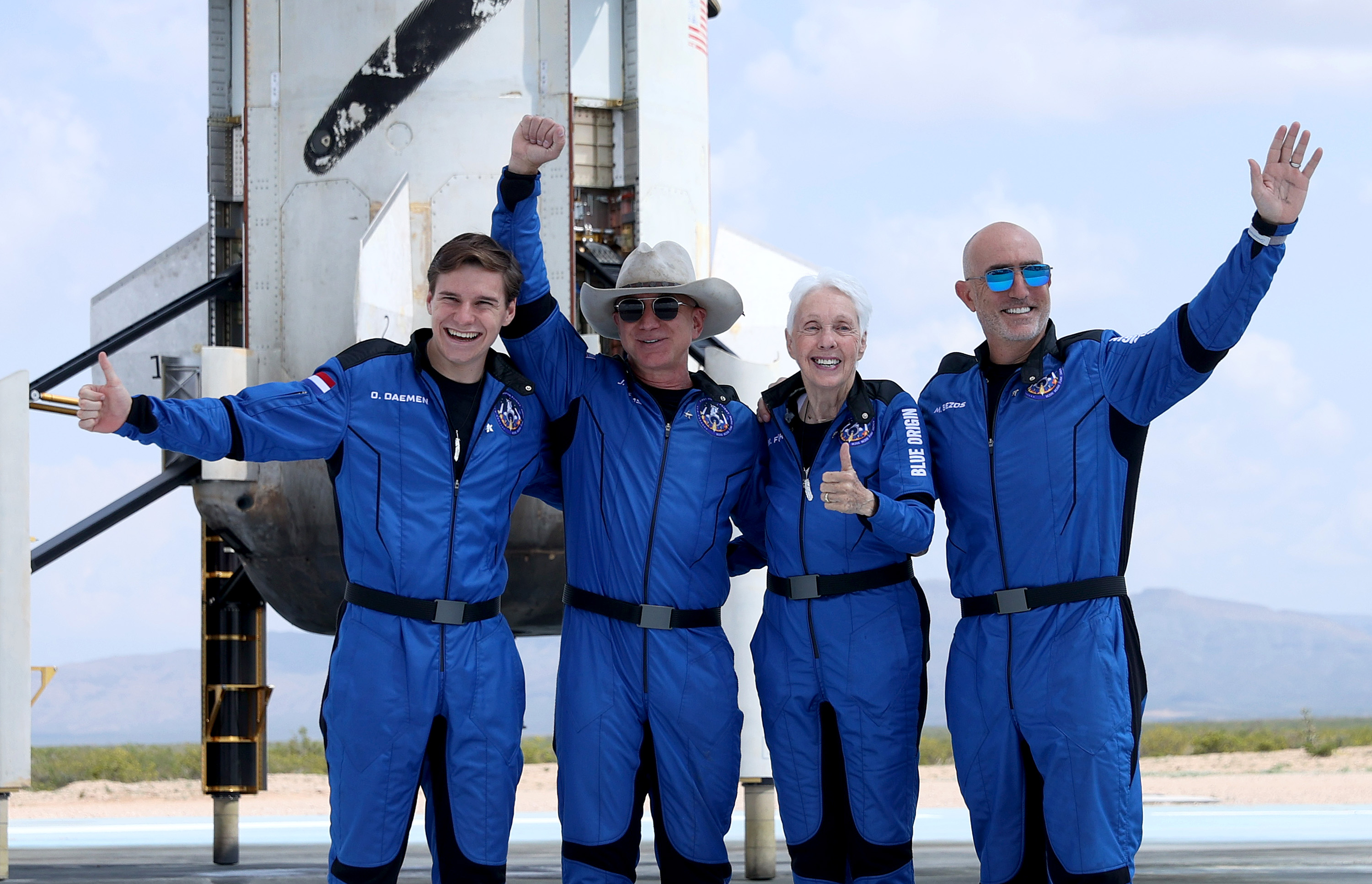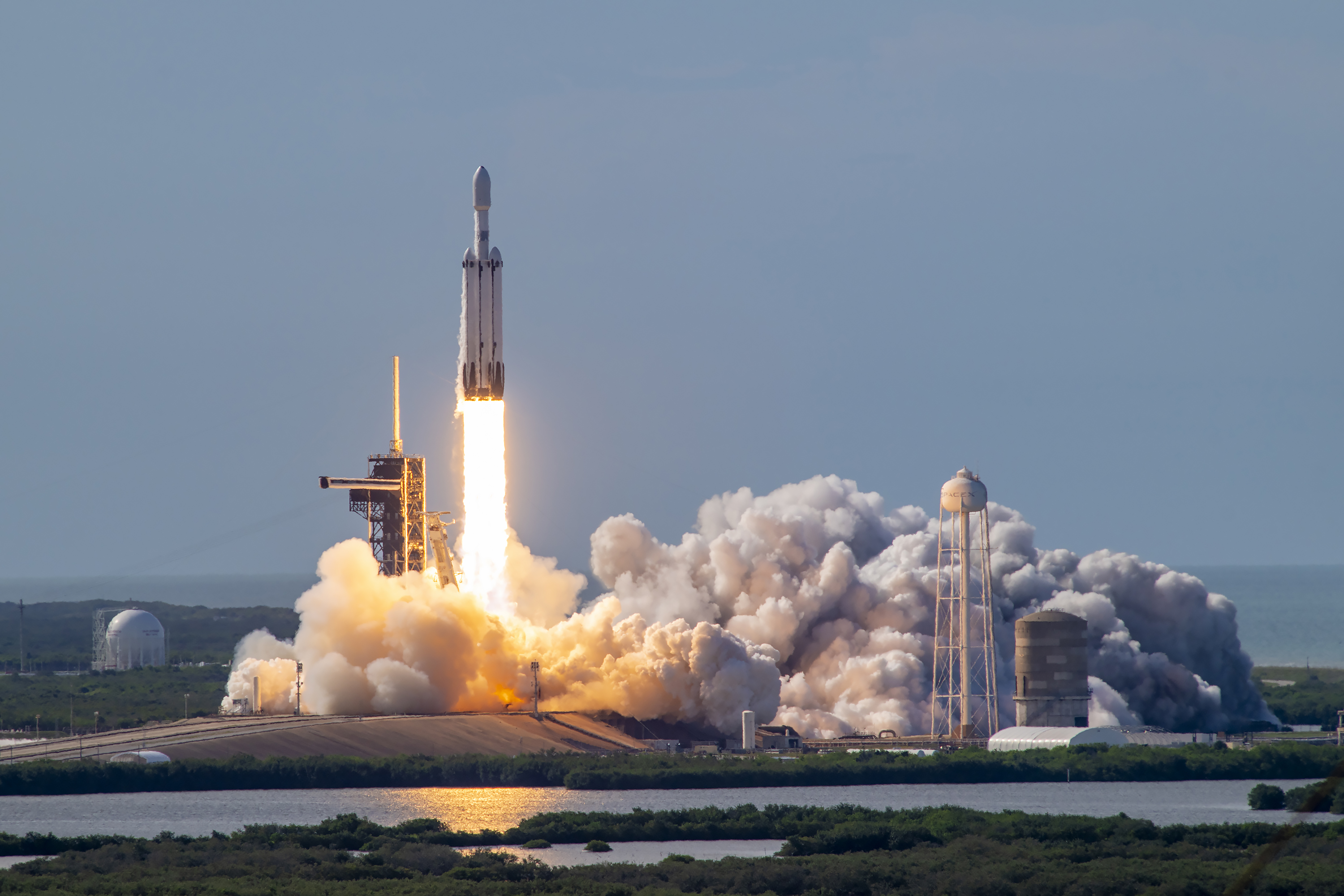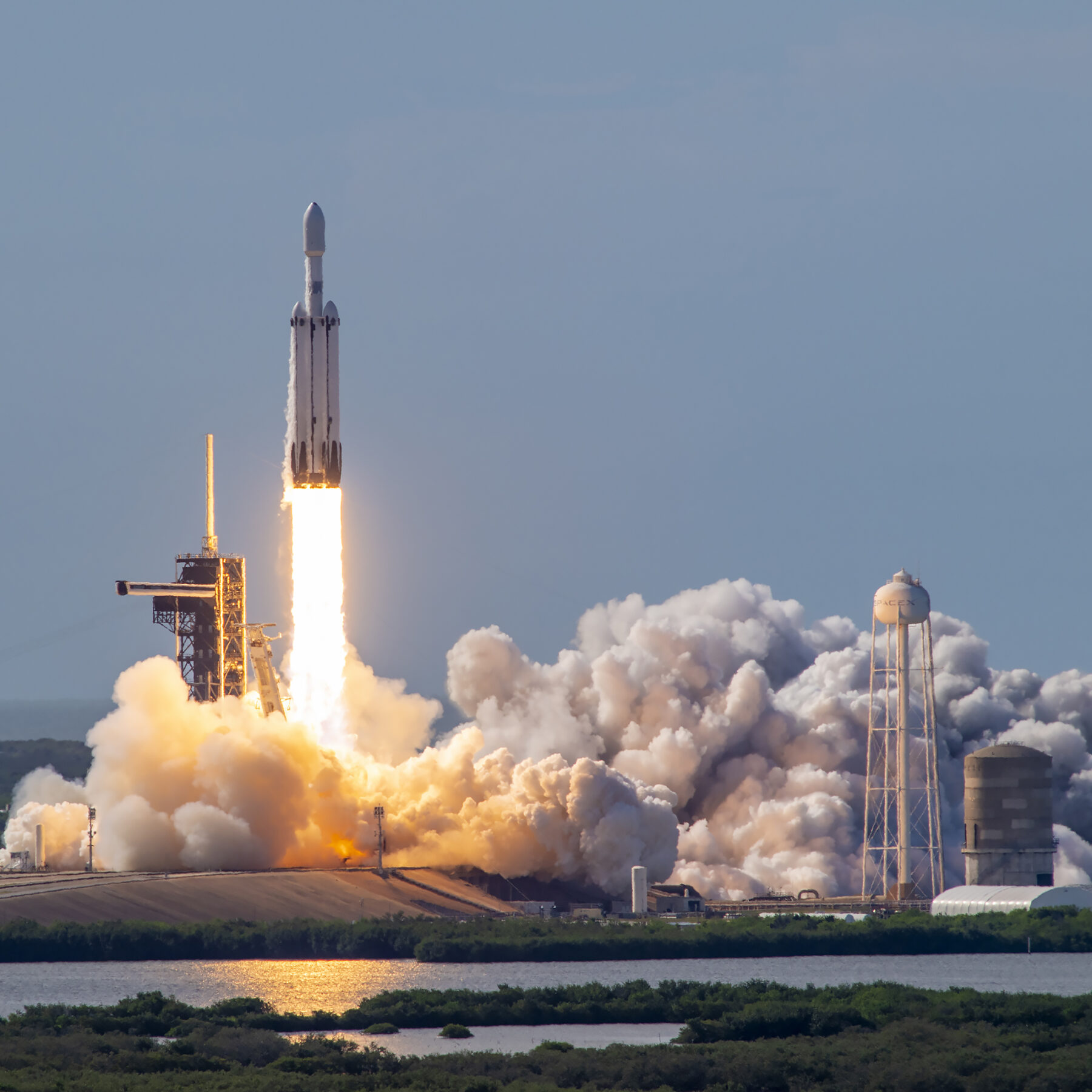Soaring above our heads are more than 10,000 satellites. More than half of them—something like 7,100, though it’s difficult to find an exact number—are not operated by the space program of a particular nation or government. Instead they belong to Elon Musk’s SpaceX. This illustrates just how rapidly interstellar innovation is evolving. In March 2025 alone, two private U.S. companies made landings on the moon. Prior to the touchdown of Intuitive Machines’ Odysseus lander in March 2024, the last U.S. moon landing was Apollo 17 in 1972. In the last several years, SpaceX and Space Adventures have given the upper echelon of tourists the opportunity to experience a few minutes of microgravity, with further plans in the works from Richard Branson’s Virgin Galactic and Jeff Bezos’s Blue Origin, among others. Even 20 years ago, only governments had the power to accomplish these missions. Now, companies are leading the charge.
We’re undoubtedly living in the world science-fiction novelists predicted throughout the 20th century. But as exhilarating as this moment may be, it is not without a new and complex set of legal challenges. Can we truly mine the moon, or possess parts of it? What happens if a private astronaut mission goes wrong and space tourists get injured, or worse? Should space be the province of the strong and rich—as so many hegemonies in history were—or should it be open to more countries and individuals?
As space exploration accelerates, the question of ownership, control and dominance over the cosmos has never been more urgent. Once the domain of Cold War superpowers, outer space is now a contested arena where national agencies like NASA and China’s CNSA compete with private giants like SpaceX—alongside a rising wave of emerging space powers, like Japan and the European Union. From lunar mining ambitions to militarized satellite networks, this new space race is not just about scientific discovery. It has set its focus on economic supremacy, strategic defence and the future of governance beyond Earth.
To learn how we got here, a brief survey of space history can provide requisite context. Following World War II, launching rockets was so prohibitively difficult, not to mention costly, that only government agencies had the resources to bankroll the mission. By and large, military objectives kept the funds flowing. The space race between the United States and the Soviet Union, which lasted roughly from the first satellite launch with Sputnik in 1957 to the co-operation of the two nations on the Apollo–Soyuz mission in 1975, was, in part, accomplished to demonstrate scientific superiority to developing nations, many of which were either considering capitalism or communism.
This perspective offers a rather limited view of the events that unfolded over two decades. While private companies played a crucial role as manufacturers and launchers, only a few countries besides these big players participated in space missions, and the capacity to carry out scientific research was also integral to exploration efforts. But one thing was for sure: space was expensive. Today, it is less so. How?

Blue Origin’s New Shepard crew Oliver Daemen, Jeff Bezos, Wally Funk, and Mark Bezos fly into space in the Blue Origin New Shepard rocket on July 20, 2021 in Van Horn (Photo: Joe Raedle/Getty Images)
One large factor—among many—was the emergence of miniaturized electronics. Smaller cameras could still take high-quality images. If you could launch a smaller camera, your satellite didn’t need to be as big. Therefore, you could shrink your rocket or send the satellites up in clutches, rather than just one at a time. These advancements opened up space to more countries, with smaller budgets.
Another significant factor was growing competition from private industry, fuelled by political desires in the 1970s and beyond to spend less on space. Companies took more responsibility for missions, especially the launches, meaning governments were on the hook for less.
The singular success of SpaceX is an unprecedented case study of how Elon Musk spent a tremendous amount of his self-made fortune to bet on self-landing rockets. The gamble certainly worked, as the company launches well over 100 rockets a year, with a large majority of them landing safely on a drone ship or a launch pad for reuse. SpaceX is so reliable that the U.S. military uses its rockets more than any other company’s.
The escalating prominence of space companies continues to feature in potential geopolitical and corporate battles. Musk’s power in government circles—even before his advisory role in the Trump administration leading the Department of Government Efficiency—flows from his money, influence and, notably, space prowess.
To name just a few examples: In 2022, Musk personally stopped Ukraine from using SpaceX Starlink satellites to guide a submarine drone attack on Russian forces. At that time, his personal connections with worldwide leaders were akin to a DIY diplomat. Now, as an insider with the Trump administration, he may bring Starlink more closely into U.S. air traffic control. Possible large cuts to NASA’s budget may bring even more influence to SpaceX, some observers fear, particularly if the company receives more launch contracts from the new presidential administration.

More generally, SpaceX shows how treaties, national interests and private enterprise are redrawing the map of the final frontier. As states and billionaires alike stake their claims, the fundamental questions remain: Is space a shared global commons or the next battleground for dominance? Who truly owns space? And, more critically, what’s at stake if the rules aren’t written now?
Experts point out that we rely on the cosmos more often than we think. Cassandra Steer, a lawyer specializing in international space law, and chair of the Australian Centre for Space Governance, says we use space multiple times a day without thinking about it. This ranges from interacting with electronic banking services, for example, settling the bill for a coffee with a tap of your phone, to checking the day’s weather forecast. By her account, having SpaceX own much of the infrastructure comes down to two issues: monopoly and the “politically fickle individual” in charge of it.
“In the beginning of the war [in Ukraine], soon after Russia’s invasion, [Musk] offered to provide Ukraine with connectivity for free in 2022. Partway through that decision, he decided to switch that service off,” she says. The Ukraine government had put in an emergency request to extend the service to a specific spot, and Musk decided not to extend it lest SpaceX be involved in some act of war. Broadening the issue to international space law, Steer says that governance tends to come down to approximately five treaties that many—but not all—nations have signed. The 1967 Outer Space Treaty is the foundational piece; among other things, it states that no government can claim ownership over space and that it has to be used for peaceful purposes. While it was written long before private companies had the influence they have today, Article 6 points out the State is responsible for any activities that fall under its jurisdiction, including all commercial activities. In some cases, international space law may also borrow from the legal framework where countries must share resources, such as deep sea bed mining. “They belong to nobody, but they also belong to everybody,” Steer says.
Canada, for example, applies the remote sensing treaty—a crucial framework for a vast and sparsely populated country—with particular attention to protecting Indigenous communities facing climate change. “You have to be licensed as a Canadian company, even if you’re launching [a satellite or rocket] from another country,” Steer says. “You’ll need a launch permit and must comply with that country’s laws as well.”
Get the
Three from 3
newsletter
Join our global community of sharp, curious thinkers to receive a carefully curated email of the three most important things to read, see and do this week.
Listen and learn.
Tune into Third Culture Leaders, a podcast hosted by our co-founder and publisher, Muraly Srinarayanathas.
Explore how leaders skillfully navigate multiple cultural landscapes, leveraging their diverse backgrounds to drive innovation and change.
The difficulty is that not all nations have agreed to key international legislation, such as the Moon Agreement of 1979. One of its major principles is that resources from the moon can’t be appropriated. However, larger space powers such as China, Russia and the United States have refused to sign.
Steer notes that Trump’s first administration issued an executive order asserting that space is not a global commons, and interpreted the Outer Space Treaty as permitting resource extraction. Dozens of nations have since signed on to the U.S.-led Artemis Accords, which in part covers moon exploration by humans, and seeks to establish global space protocols. Fundamentally, the accords explicitly construe the treaty as an initiation for space mining—a potential cash cow for early space investors. As a result, Steer says that any nation that commits to both the Artemis Accords and the Moon Agreement must navigate the complexities of these potentially conflicting frameworks.
However, property rights may not necessarily be a bad thing, says Wayne White, a lawyer and adjunct faculty in the college of aviation at Embry-Riddle Aeronautical University in Daytona Beach, Florida. “I think property rights are necessary to tell people and companies what authority they have, with respect to their space objects and surrounding safety zones,” he says. “National property laws would provide an enforcement mechanism in national courts, and nations could recognize each other’s property rights and court decisions.”
Space, like any frontier shaped by human ambition, will ultimately be defined by the decisions we make, and the choices we bypass. Its legal framework, established nearly two generations ago, continues to evolve in response to expanding activity and enterprise. As we push beyond satellite deployments toward lunar exploration, the real test isn’t just technological—it’s about who gets a seat at the table. For many, the ideal circumstance is that space remains open for shared participation, regardless of national origin, riches or political stripe. But questions remain—Will it remain open for all, or will it be carved up by the powerful? And if the rules are still being written, who gets to hold the pen?

